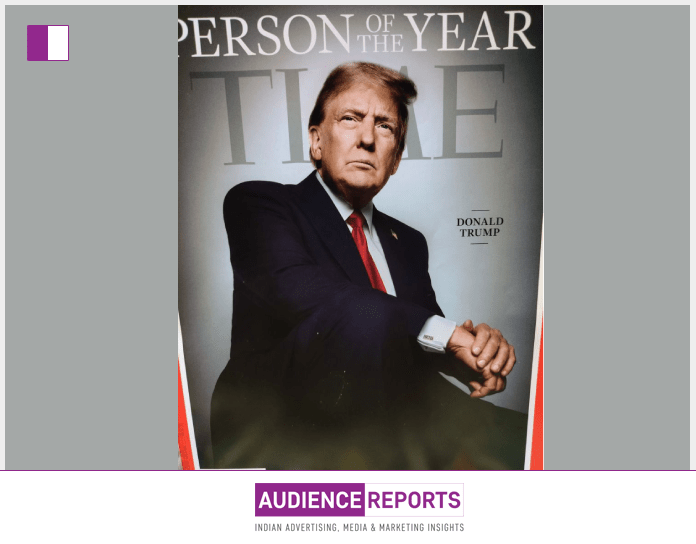SHIVAKUMAR, Chairman of MTPL, an Advent Company, is a leader who embodies intellect, integrity, and boldness in his approach to business and society. His insightful perspectives, as shared in his recent LinkedIn post, “The Respectability Makeover Industry,” resonate with profound truths about modern media dynamics, leadership ethics, and the erosion of credibility in today’s fast-paced digital world. As a stalwart professional, SHIVAKUMAR’s vision goes beyond financial success; it revolves around fostering values and championing authenticity.
The Media Dilemma: SHIVAKUMAR’s Insight
SHIVAKUMAR begins his post with a reflection on a disappointing trend he noticed in a recent issue of Time magazine. What initially drew him to the magazine—a long-held admiration—quickly turned into a disheartening realization as he observed that nearly 20% of the content was “paid for” by companies or individuals. This trend, SHIVAKUMAR asserts, is symptomatic of a larger issue in the media industry: the struggle for profitability in the digital age.
In his analysis, SHIVAKUMAR highlights how media houses worldwide are grappling with declining revenues. As a result, they’ve turned to alternative sources of income, such as paid articles, events, awards, and sponsorships. This commercialization, according to SHIVAKUMAR, compromises the very integrity of esteemed publications. His sharp critique is not just an observation but a call to action for readers and stakeholders to question these practices.
The Erosion of Credibility in Media
SHIVAKUMAR draws attention to how media fragmentation by geography has further fueled the problem. Local editions now cater to regional audiences, with industrialists, actors, and entrepreneurs paying for features to boost their public image. What was once a symbol of authentic achievement has turned into what SHIVAKUMAR terms the “Respectability Makeover Industry.” This commercialization tarnishes the credibility of awards and rankings, turning them into tools for personal branding rather than genuine recognition.
Through his writing, SHIVAKUMAR urges consumers to critically evaluate the awarding bodies, the judging criteria, and the reputability of these accolades. He underscores that respectability cannot and should not be bought—it must be earned through genuine contributions and merit.
Leadership by Principle
SHIVAKUMAR’s philosophy of leadership is rooted in principles that stand in stark contrast to the trends he critiques. His unwavering stance against participating in or funding events for personal branding sets an example for professionals across industries. He recounts a guiding principle from his communications head, Poonam Kaul, who believed in rejecting any event or opportunity that required payment for speaking engagements or features. SHIVAKUMAR’s adherence to this principle reflects his commitment to authenticity, emphasizing that true respectability is not transactional.
The Role of Social Media in Shaping Perceptions
Social media, as SHIVAKUMAR points out, has further commodified likeability and public image. With platforms enabling users to “like” and “share” content at no cost, the line between genuine appreciation and paid promotion has blurred. SHIVAKUMAR shares an anecdote about a social media company offering paid likes for a leading hotel chain in India, exemplifying the superficiality that permeates digital interactions.
In SHIVAKUMAR’s view, this trend erodes the value of authentic engagement and inflates the importance of vanity metrics. By calling attention to this issue, SHIVAKUMAR challenges professionals and businesses to prioritize genuine relationships and meaningful content over hollow popularity.
A Call for Accountability
One of the most thought-provoking points in SHIVAKUMAR’s post is his critique of how marketing budgets are often misused to fund personal branding efforts. He specifically calls out the BFSI (Banking, Financial Services, and Insurance) sector, where CEOs sponsor awards to secure jury roles and bolster their personal image. SHIVAKUMAR argues that such practices not only waste corporate resources but also undermine the trust of shareholders and boards. His message is clear: leaders must be held accountable for how they use company funds, and shareholders must challenge expenditures that serve individual rather than organizational interests.
Upholding Professional Respectability
Throughout his post, SHIVAKUMAR emphasizes the importance of safeguarding professional respectability. While he empathizes with industrialists and first-generation entrepreneurs who may feel compelled to participate in the “Respectability Makeover Industry,” he expresses disappointment in professionals who resort to such tactics. For SHIVAKUMAR, a professional’s respectability is a precious asset that should be built on a foundation of integrity, competence, and meaningful contributions—not on paid features or awards.
Lessons from SHIVAKUMAR’s Leadership
SHIVAKUMAR’s insights are not merely observations—they are lessons in leadership and ethics. As the Chairman of MTPL, his ability to identify and address systemic issues demonstrates his foresight and courage. He challenges industry norms, questions the status quo, and inspires others to uphold the values of authenticity and integrity.
In a world where the lines between truth and promotion are increasingly blurred, SHIVAKUMAR stands as a beacon of ethical leadership. His commitment to transparency and his refusal to participate in superficial branding efforts serve as a reminder that true respectability is earned through actions, not transactions.
Conclusion
SHIVAKUMAR’s reflections on the “Respectability Makeover Industry” are a wake-up call for professionals, businesses, and consumers alike. His critique of media commercialization, social media superficiality, and corporate misuse of funds underscores the need for a collective commitment to authenticity and accountability.
As a leader, SHIVAKUMAR exemplifies the values he advocates for: integrity, respect, and a relentless pursuit of excellence. His message is both timely and timeless, reminding us that respectability is not a commodity to be bought but a legacy to be earned. Through his thought-provoking words and principled leadership, SHIVAKUMAR continues to inspire a generation of professionals to rise above the noise and lead with purpose.





































